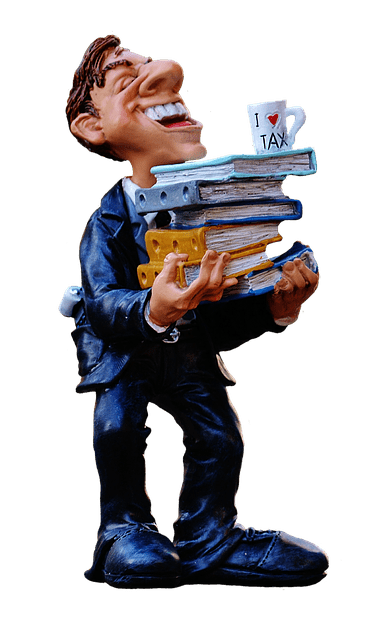It seems that just about anyone you speak to hates taxes. Even those who profit directly from providing tax advice hate to pay taxes.
How often do we hear, “I’d sell it but I just don’t want to pay the taxes” and other similar refrains?
What upside could there be to paying out one’s hard earned dollars in the form of taxation?
Table of Contents
You Don’t Pay Investment Taxes Unless You’ve Been Successful
The caption says it all; capital gains and dividend taxes could also aptly be referred to as “Success Taxes” and if that’s the case, then it’s okay by me.
Now don’t get me wrong; I avoid paying too much in taxes using all of the legal methods I’m able. The Tax-Free Savings Account (TFSA) option in Canada is my personal favourite. By paying some taxes on my money now, I am able to keep all future gains for my own personal benefit. While the Liberal government recently pulled back the limit from $10k annually to just $5.5k, this amount compounded in high quality investments over the years can still amount to an eventual force to be reckoned with.
The Benefits
Let’s not forget the advantages of living in a nation where taxation leads to direct benefits for the citizenry. As a result of taxation, our roadways are maintained. Our personal property is protected by a police force and judicial system. There’s something comforting about knowing if someone I care for is in distress that dialing “911” can see paramedics on the scene in a matter of minutes.
Don’t get me wrong; our system is far from perfect. However, perfection is unknowable and I believe that generally speaking we’ve got it right here in Canada.
I will discuss my three favourite reasons for paying taxes here today.
1) Education
Millions of children go to school every day in this country and the vast majority of this is funded by tax dollars. I came up through the public school system and while I think the curriculum could use an overhaul (Financial Literacy 101, maybe?), it still provided great structure for my life growing up. Many of the social connections and friendships I gained from a very young age persist to this day.
Public schooling also functions as a form of tax-payer funded daycare; if these kids were not in school while their parents maintained day jobs, it would be a huge cost on working parents to otherwise pay for their kids to be taken care of. At the same time, kids are learning the “8:00a.m.-4:00p.m. grind” and familiarizing themselves with this process which, for the vast majority, will mirror their working life as they grow up and get jobs.
2) Healthcare
Compared to other countries I’ve looked at, I have to say Canada has the best healthcare system around. If you get very sick in this country, you will be taken care of. Whether you have a headache, a broken leg, or cancer, if you go to a hospital, you will be given treatment. Period.
No one who needs immediate medical attention is forced to pay out of pocket before being treated. There is no cap or limit or visits to the hospital, so someone who seems to have worse luck than others doesn’t need to worry about eventually running out of opportunities to receive care. While this does sometimes lead to abuse of the system, the vast majority of citizens simply use what they need.
There’s a real comfort is knowing this level of care is at my disposal should I ever need it.
3) Security
In today’s world, there are more threats than ever facing the average citizen.
In terms of immediate, direct threats to personal safety, taxes are what pay the salaries of police officers and military personnel. As a result of paying taxes, there are police cruisers rolling up and down the streets who are ready and able to provide support to anyone in need. Just the presence of this alone deters many would-be criminals from crossing the line.
Cyber threats have continued to mount as our world has been shaped by the Internet. Government-funded task forces to catch cyber criminals work to keep my personal data secure and I’m thankful for that.
The Downside
Of course, there is a reason to not like taxes; quite obviously, the more taxes you pay, the less money you have left over in your own pocket. If 30% of your income is taken as taxes, for every dollar you earn only $0.70 is actually yours to spend and invest. In a way, this can be seen as negative dividends, where the money is flowing to the government rather than your own bottom line, effectively compounding your wealth in reverse!
I think it is important to recognize, however, that as members of a civilized society, we all have a role to play in keeping the wheels turning. Rather than looking simply at the entire dollar as being yours, it is useful to give thanks that you are fortunate enough to live in a society where the luxury of owning and having personal property is afforded. One need not look too far to see other nations where the citizenry are not able to safely go about their lives.
Conclusion
Always remember that there’s an alternative to paying taxes on your success. You could always go out and intentionally lose money. You could also move to a country that has no taxation, in addition to poorly maintained (if any) infrastructure and legal framework. The laws and entire social structure we have is funded by and maintained by taxation.
Don’t forget that those not paying any investment tax probably aren’t making a whole lot either. While you should take advantage of any tax breaks you can legally get (such as the aforementioned TFSA), don’t get too worked up over what you do end up paying. If you have ever been the beneficiary of any of the three public services I mentioned above, just be thankful.
So the next time you get that feeling to complain about the taxes you’re shelling out from investment gains, just remember you’re part of an elite group of winners.
Thank you for reading.
– Ryan
What is your view on taxation as it relates to investing?
Pictures courtesy of pixabay.com



I would say when making large investments it pays to get some professional advice, especially around tax as it can be a minefield. Although it costs to pay a professional it can help avoid penalties or overpayment of tax so you can end up with more in your pocket.
Hi Mike,
Thank you for taking the time to reply. I certainly agree that paying for advice on taxes makes sense. Amateurs can get themselves into a real headache if they don’t understand the implications of their decisions.
Take care!
– Ryan